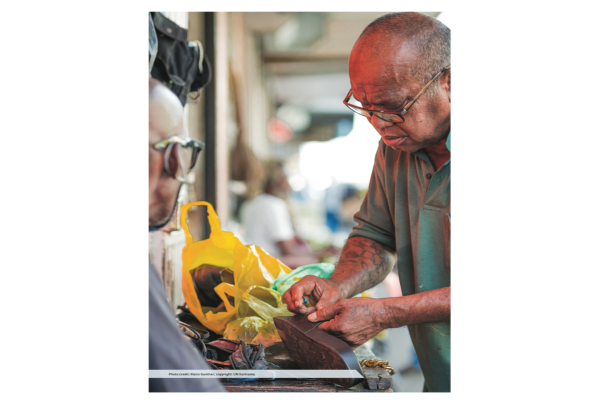
Asia-Pacific and Caribbean island states are both involved in the development and implementation of regional level United Nations Sustainable Development Cooperation Frameworks (UNSDCFs) that are operationalized at the country level. The UNSDCF is a vehicle for identifying development solutions through inclusive dialogue. In looking at development trends beyond national boundaries, it includes and contributes to regional, sub-regional and cross-border strategies and partnerships, both external and internal to the UN development system. It also actively facilitates South-South cooperation and triangular cooperation, in complement of official development assistance. Under the UNSDCFs, the UN development system pursues all partnerships in line with the Common Minimum Standards for Multi-Stakeholder Partnerships developed by the UN Sustainable Development Group .
Given that UNSDCFs are well into their fifth year of preparation and implementation, the time is opportune to take stock and exchange knowledge, experiences, lessons, and good practices of stakeholder involvement, particularly regarding trade union engagement and influence in the UNSDCFs. Emerging good practices of trade union engagement in the UNSDCFs are being assembled within the ILO to showcase the lasting benefit and value of social dialogue to institution building and policymaking and the emerging opportunities for trade unions to engage, learn from and influence the design and implementation of smarter solutions to achieve sustainable results– with the aim to embed decent work priorities and promote inclusive sustainable growth in national development plans and strategies and contribute to building stronger, more sustainable, democratic and equal societies.
A South-South cooperation initiative within and between trade unions of the two sub-regions, especially from often excluded island and developing states, therefore, responds to a felt need to promote intra-and interregional exchange of knowledge, experiences, and good practices of trade union engagement in UNSDCFs and also advance the creation of networks of trade union experts and researchers that have participated in the UNSDCFs that can continue to exchange knowledge, experience, and expertise for strengthening institutional capacities, policy influence and sustained cooperation.
Two sub-regional studies separately in the Caribbeans and Asia-Pacific have recently been conducted by ILO-ACTRAV in collaboration with PARDEV’s South-South and Triangular Cooperation unit to document emerging good practices of trade union engagement in UN Sustainable Development Cooperation Frameworks and the SDGs processes. Based on the two sub-regional studies, the webinar aims to provide a forum for dissemination of the findings and to provide workers’ organizations an intra-and inter-regional platform to exchange knowledge, practical experiences, good practices, and lessons learned in relation to trade union engagement in UNSDCFs. While there are several ongoing initiatives within and between the two sub-regions, the RBTC-SSC mechanism offers a unique means to extend south-south cooperation among workers organizations that would not otherwise be in contact. This initial exchange within the respective sub-regions and between them is expected to generate entry points for further intra and interregional exchanges among workers organizations.

